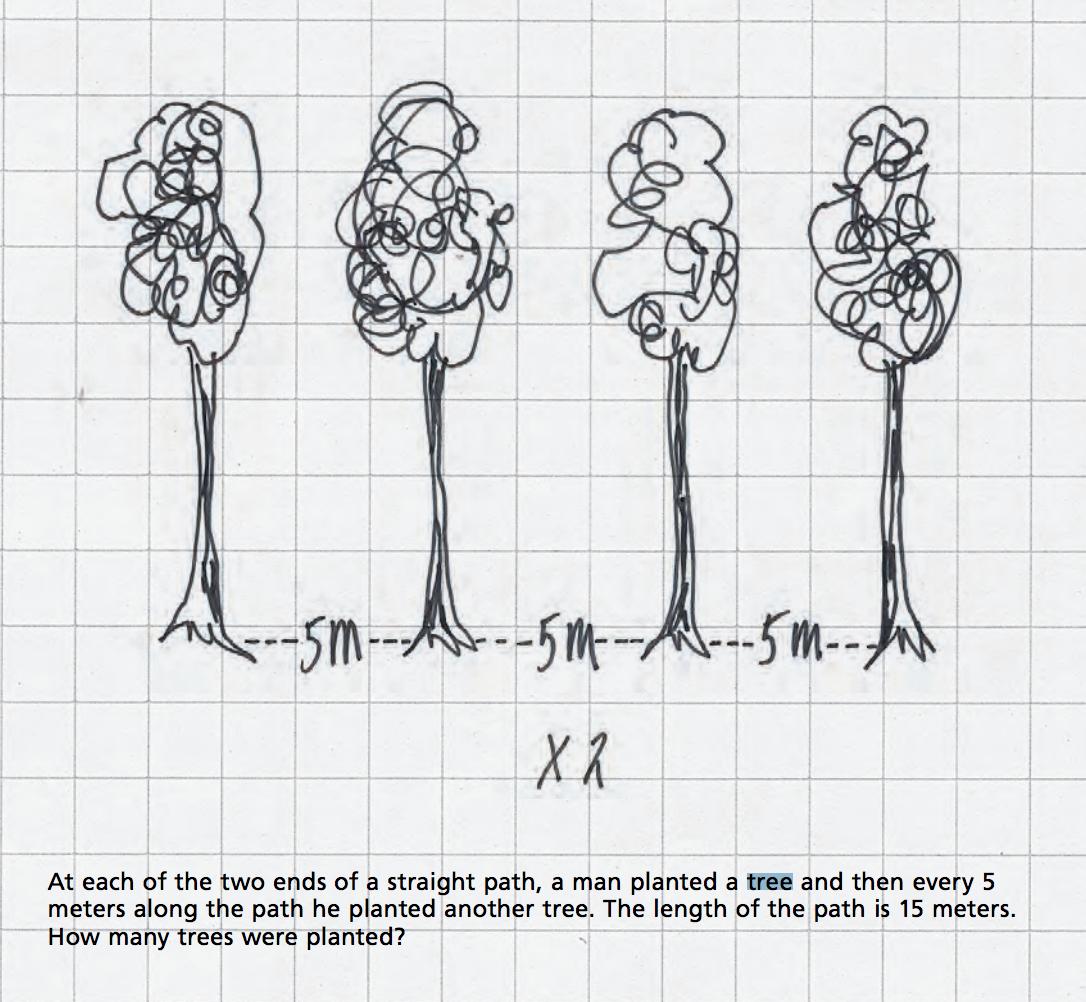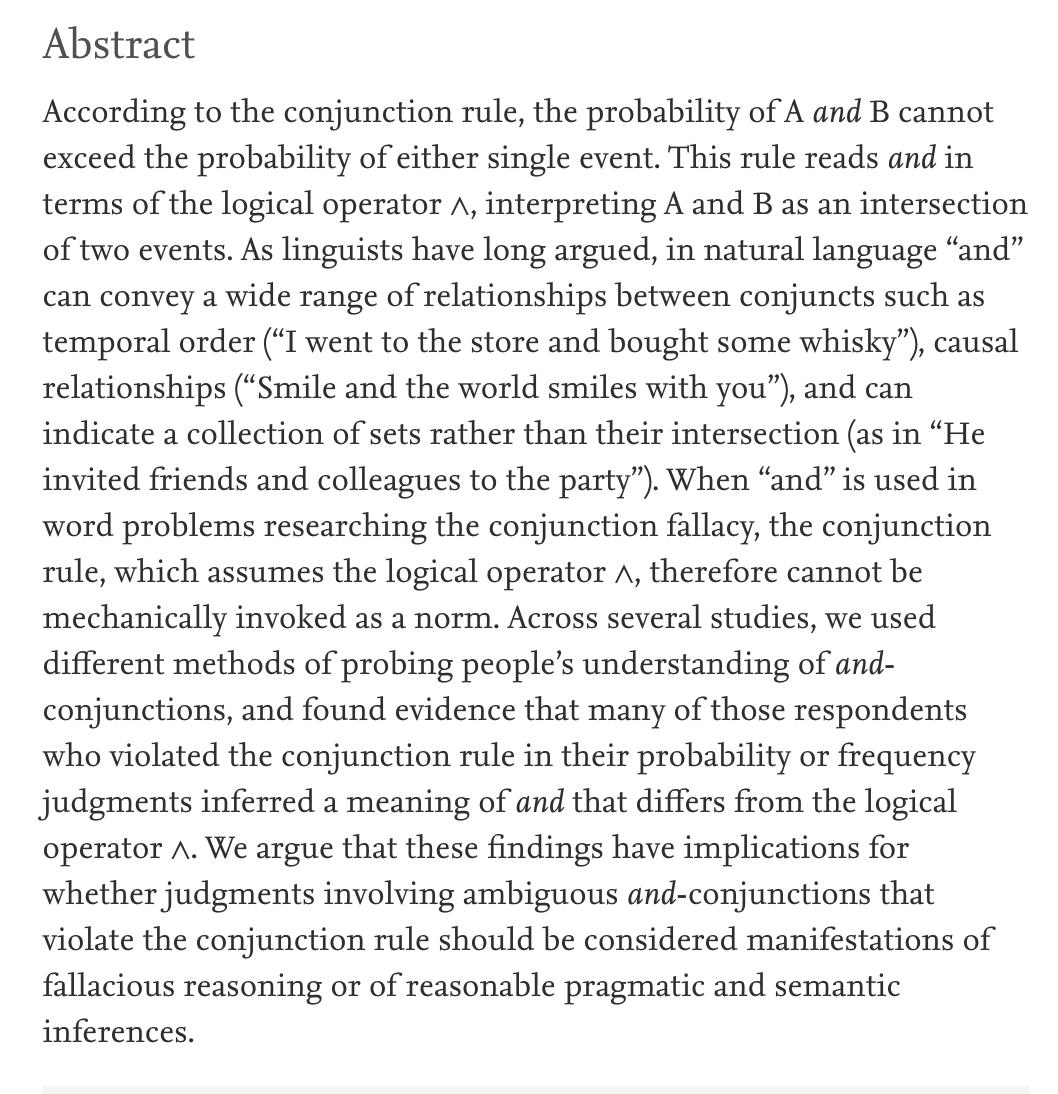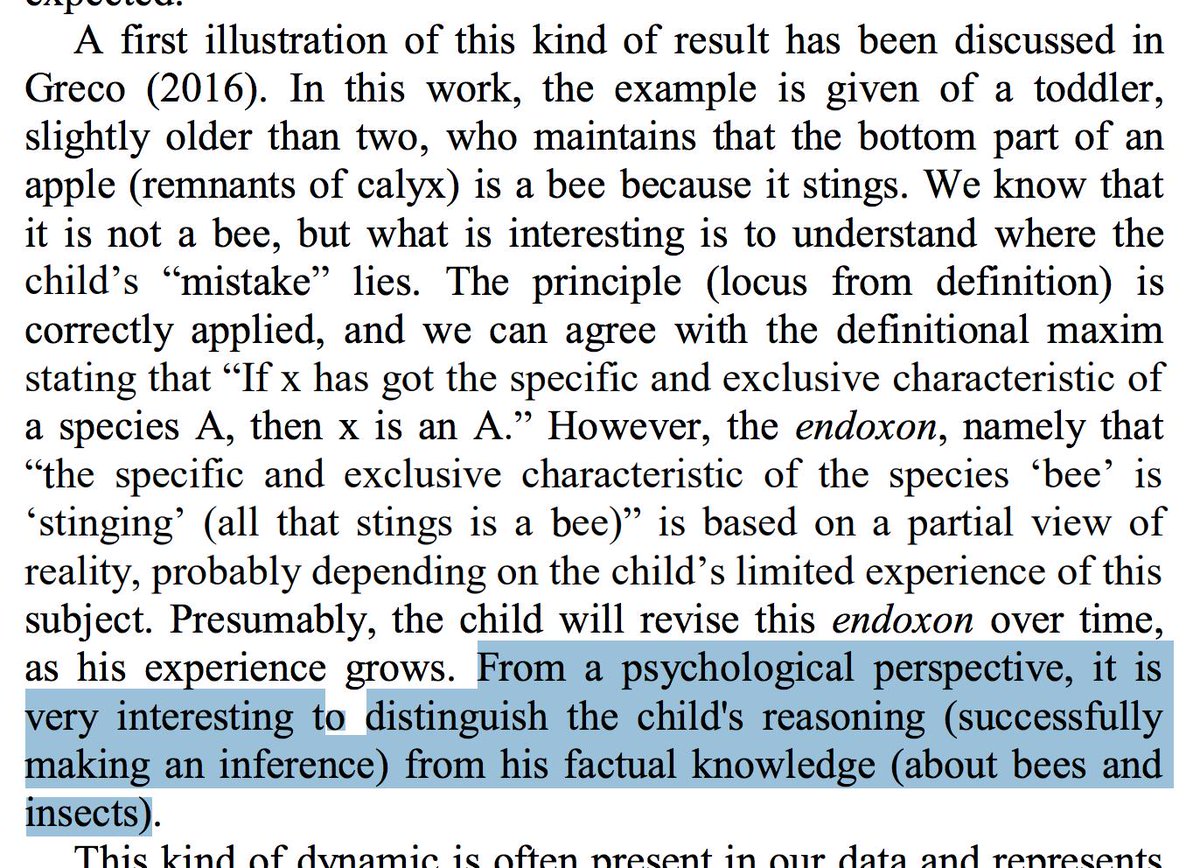Logic is demanding discipline. Medieval scholars were excellent logicians, rumor has it. Yet there is a lot of logic in everyday reasoning also, not rigorous at all. Expect pseudo-logic to play havoc with test items.
- All animals can fly.
- I am an animal.
- Therefore I can fly.
In logic it is possible to posit a false premise, ‘all animals fly’, and yet have a perfectly valid syllogism.
In principle, all context questions in math are of this type!
Can you spot the logical inconsistency?

Hertwig, Benz & Krauss 2008: The conjunction fallacy and the many meanings of ‘and’. pdf:
sci-hub.tw/10.1016/j.cogn…

A recent article: link.springer.com/article/10.100… open
Leighton & Sternberg 2012: Reasoning and Problem Solving. Handbook of Psychology, 2nd.
sci-hub.tw/10.1002/978111…
Reasoning is not ‘just reasoning’, it is a complex phenomenon. Do you still want to test students on their reasoning abilities?
A Dutch Science Quiz in 2005 had the following item:
- Build a tower of square paving stones leaning as far as possible to one side.
- The stones must be placed on top of one another, not next to others.
- How far will the tower lean over maximally?
1. exactly two stones
2. approximately one and a half stone
3. infinitely far.
(info on the math: Eric W. Weisstein (2005?). ‘Book Stacking problem’ mathworld.wolfram.com/BookStackingPr…)
The eds. of the quiz were warned for the clumsy wording of this item., yet they went along with it.
(Lost the source of this observation)
e.g. Sara Greco 2018: The Analysis of Implicit Premises within Children’s Argumentative Inferences. Quote:

“- All animals love water.
- Cats do not like water.
- Cats are not animals.” p. 172 in:
Keith E. Stanovich (1999). ‘Who is rational? Studies of individual differences in reasoning’ crcpress.com/Who-Is-Rationa…
Reviewed: pdfs.semanticscholar.org/66a6/ed5452c27…
The title is apt: students typically are struggling with new course content contradicting prior belief. E.g. in physics. #belief_change
“.... indicates a significant effect of subjects' beliefs on logical reasoning tasks”
There is a lot more recent research on the belief-bias effect, however. Google it.
Oakhill, Johnson-Laird & Garnhem, 1989: Believability and syllogistic reasoning. Cognition, 31, 117-140. Abstract: sciencedirect.com/science/articl… paywalled, no alternative available.
Reasoning is related ‘critical thinking’. Be aware of the lack of research showing both to be GENERIC skills. They are content-SPECIFIC.
- All of the Frenchmen are wine drinkers
- Some of the wine drinkers are gourmets
What does or does not follow?
(this is an ambiguity that might easily be present in exam items)
8.2.4 Tableaus vs natural reasoning
- All of the Frenchmen are wine drinkers
- Some of the wine drinkers are Italians
The 3-doors problem is known as the Monty Hall problem: always change doors! math.ucsd.edu/~crypto/Monty/…
Typically teachers think of questions to ask of pupils. Mixing up formal and common sense reasoning in those questions (eg contextual math) is a serious disserve to students.
In education that restriction is extremely unnatural. In reading the main activity is bringing one’s knowledge to bear on the text.
There is (rare) research showing better students to be let down in educational assessment.
Professors of statistics were prepared to vehemently defend the wrong action (do not change).
Indeed, the common sense idea is: the car is behind the two doors still closed, 50%!
A book specifically on the Monty Hall problem: Rosenhouse global.oup.com/academic/produ…
If you like this kind of problem, other ones treated by Maya Bar-Hillel and Ruma Falk (1982). ‘Some teasers concerning conditional probabilities’ Cognition clear.rice.edu/comp280/10spri…





